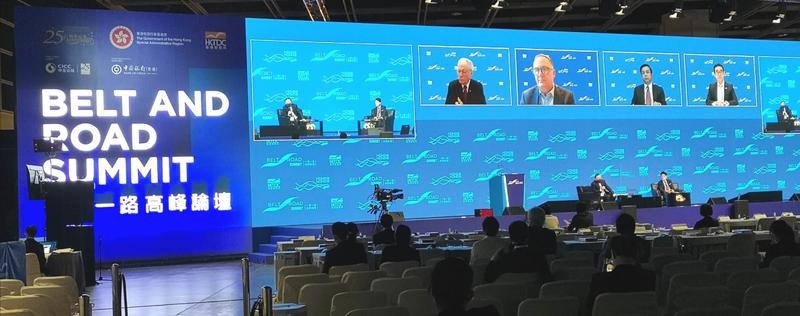2022-08-31
Xu Weiwei

Free trade and multilateral mechanisms are confronting challenges posed by anti-connectivity forces while the world needs more and better connectivity by ways of the Belt and Road Initiative and trade agreements that facilitate development, prosperity and peace. At the “Business Plenary: Collaborate for a Bright New Era” of the Belt and Road summit in Hong Kong on Aug 31, speakers criticized forces that disrupt global supply chain and free flow of goods and services. The BRI, a modern version of the long-standing concept of linking Asia through Europe, keeps promoting free trade and multilateral development via digital and physical means, according to Sir John Key, the 38th Prime Minister of New Zealand from 2008 to December 2016. And the Regional Comprehensive Economic Partnership, the largest free trade agreement in history, showcases the human progress for multilateralism and common development. Key’s ideas are well shared by Sir Rod Eddington AO, Chairman of Infrastructure Partnerships Australia. “The case of free trade has to be constantly made by both political leaders and business leaders,” said Eddington, who is also Chairman of J.P. Morgan’s Asia Pacific Advisory Council and Non-Executive Chairman of Lion group. “There are forces in all countries which resist the movement of free goods and services around the world,” he said. And they are from quite a broad political and business spectrum. Key said some people try to change the global supply chain, and the United States in particular. The trade barriers and sanctions imposed by former US president Donald Trump on China, have resulted in “breathtaking” impact on consumers, said Key, who is the Chairman of ANZ Bank New Zealand. Moreover, the changed rhetoric of Trump in relation to China has “created another obstacle” that confronts the region. Liu Liange, Chairman of the Board of Directors of Bank of China, said China remains committed to multilateralism and free trade in practice and pledge. And the Bank of China has been a vanguard to back up BRI and RCEP projects across the region. In fact, Key said, the cheap and high quality goods from economies like China “have actually lifted the standard of living” while US trade barriers work in the opposite direction, contributing to inflation among others. Aswin Techajareonvikul, Chief Executive Officer and President of Berli Jucker Public Company Limited, agreed that BRI and RCEP provide better opportunities to smaller countries like Thailand. Eddington of Australia said: “We’d like to see supply chains and people-to-people movements return to normal as quickly as possible because on the basis of those things regional prosperity will grow,” he said, adding that is “the best guarantee” of peace. Australia’s trade relation with East Asia including China and Southeast Asia is strong and should be further strengthened, he said. YK Pang, Deputy Managing Director & Chairman of Hong Kong Jardine Matheson Holdings Limited, noted the supply chain also suffers from security disruptions such as the Ukraine-Russia conflict. Other speakers agreed that geopolitical interventions are causing widespread concerns about the vulnerability of supply chain. Key of New Zealand called US congress Speaker Nancy Pelosy “selfish” and her provocative visit to Taiwan dangerous, as her recent visit in Taipei “risks security in the region” and can make supply chain suffer more. “Countries who trade together, who talk to each other about trade issues are far less likely” to be involved in conflicts, Key said, instead at disputes they would find ways to engage and understand each other. Paul Chan Mo-po, Financial Secretary of Hong Kong Special Administrative Region, expounded HK’s role as super connector and its wish to join in RCEP in special remarks. Panel Chair Ronnie C. Chan, Chair of Hang Lung Properties Limited, in concluding remarks, said the BRI and RCEP are connectivity, and trade is really for global peace in many ways.